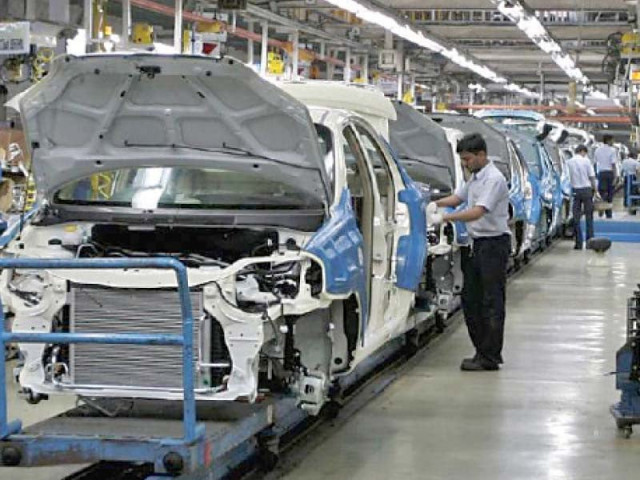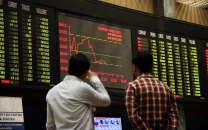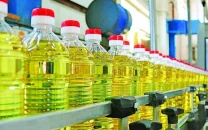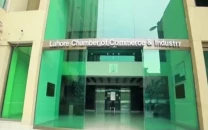Auto industry struggles to meet annual production targets
Sales witness 51% YoY decline, raising doubts about achieving AIDEP targets

In a challenging turn of events, the auto industry’s pursuit of reaching the milestone of an annual production of 500,000 units seems to be slipping away, as current circumstances present formidable obstacles. Doubts arise regarding the attainment of even the lesser target of 400,000 annual unit sales envisioned by the Auto Industry Development and Export Policy (AIDEP) 2021-2026.
The auto industry is grappling with a severe downturn, witnessing a staggering 51% year-on-year decline in total industry sales during the 11 months of fiscal year 2023. The cumulative sales figure stands at 153,000 units, a significant drop from the 308,000 units sold during the same period last year. With these dismal numbers, the ambitious target of achieving an annual production of 500,000 units seems increasingly difficult to reach. There are now doubts about reaching the 400,000 annual unit sales mark by 2026, as indicated in the AKD research report ‘Pakistan Auto Sector Monthly’ of June 2023. Furthermore, the ongoing challenges in the sector suggest that the set targets of the current auto policy, AIDEP 2021-26, are highly unlikely to be achieved.
The auto sector has been underperforming for valid reasons, with an 18.1% decline in the year-to-date calendar, trailing behind the KSE100 index by 18.7%, according to AKD auto analyst Usama Rauf. Factors such as supply chain issues arising from Letter of Credit (LC) restrictions, exchange rate fluctuations, and price hikes have adversely affected the demand outlook.
“Devaluation and supply-side issues have amplified the auto sector’s woes,” he said.
The devaluation of the exchange rate has exacerbated existing supply-side issues for the auto sector. The Pakistani rupee has depreciated by 40% against the US dollar in the fiscal year-to-date, leading local assemblers to increase vehicle prices by approximately 35% since July 2022. While these price hikes have contributed to challenges on the demand side, they have boosted assemblers’ margins and bottom line. In the March 2023 quarter, the three major auto manufacturers, Indus Motors Company, Honda Atlas Car, and Pakistan Suzuki, achieved an average gross margin of 9.3%, compared to 4.9% during the same period last year, said Rauf.
The decline in sales numbers during the 11 months of fiscal year 2023 vividly illustrates the current challenges faced by the auto sector. Total industry sales have plummeted by 51% year-on-year, with a cumulative sale of 153,000 units compared to 308,000 units sold during the same period in the previous year. The passenger car segment experienced the highest negative growth, with a decline of 56% year-on-year, followed by tractors with a decrease of 46% year-on-year.
“The federal budget has added to the industry’s woes,” said the AKD auto analyst.
The auto sector’s profitability is expected to face further obstacles due to the imposition of a 10% super tax. However, there is a glimmer of hope as the reduction of the minimum tax regime will benefit PSMC, which is projected to report a loss of Rs12.9 billion in the first quarter of the calendar year 2023. The removal of the fixed tax regime on Asian manufactured vehicles above 1,300cc is also anticipated to have a positive impact on local auto demand, albeit a negligible one. Moreover, the reduction in customs duty on certain Completely Knocked Down (CKD) parts for Heavy Commercial Vehicles (HCV) from 10% to 5% is considered a positive change for HCV assemblers such as GAL and GHNI.
According to auto expert Mashood Ali Khan, the automotive sector is losing focus on its objectives due to the closure of manufacturing plants by major auto original equipment manufacturers (OEMs) such as Atlas Honda, Pak Suzuki, and Indus Motors. These plant closures are a result of the shortage of spare parts caused by import restrictions. Khan emphasised the urgent need to address the country’s economic challenges and political unrest to improve foreign exchange reserves and facilitate the recovery of the automotive industry.
Currently, two important aspects come to mind in this regard: political stability and building trust between the business community and the government, he said.
For political stability, it is crucial for all stakeholders to come together and prioritise policies that benefit Pakistan as a whole, rather than engaging in personal conflicts or vendettas, said Khan. Over the past two years, the trade deficit has reached unprecedented levels. Therefore, it is essential to foster a sense of trust and cooperation between the business sector and the government to address and rectify this situation.
Published in The Express Tribune, June 23rd, 2023.
Like Business on Facebook, follow @TribuneBiz on Twitter to stay informed and join in the conversation.


















COMMENTS
Comments are moderated and generally will be posted if they are on-topic and not abusive.
For more information, please see our Comments FAQ